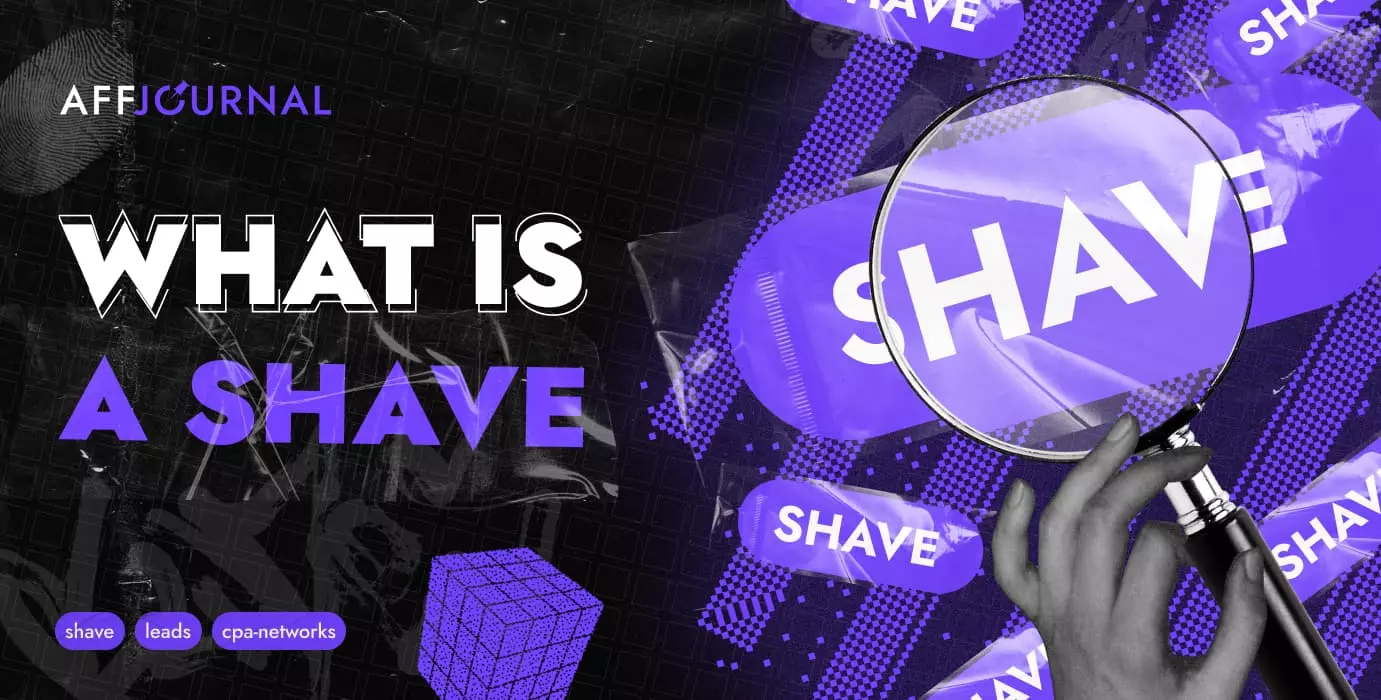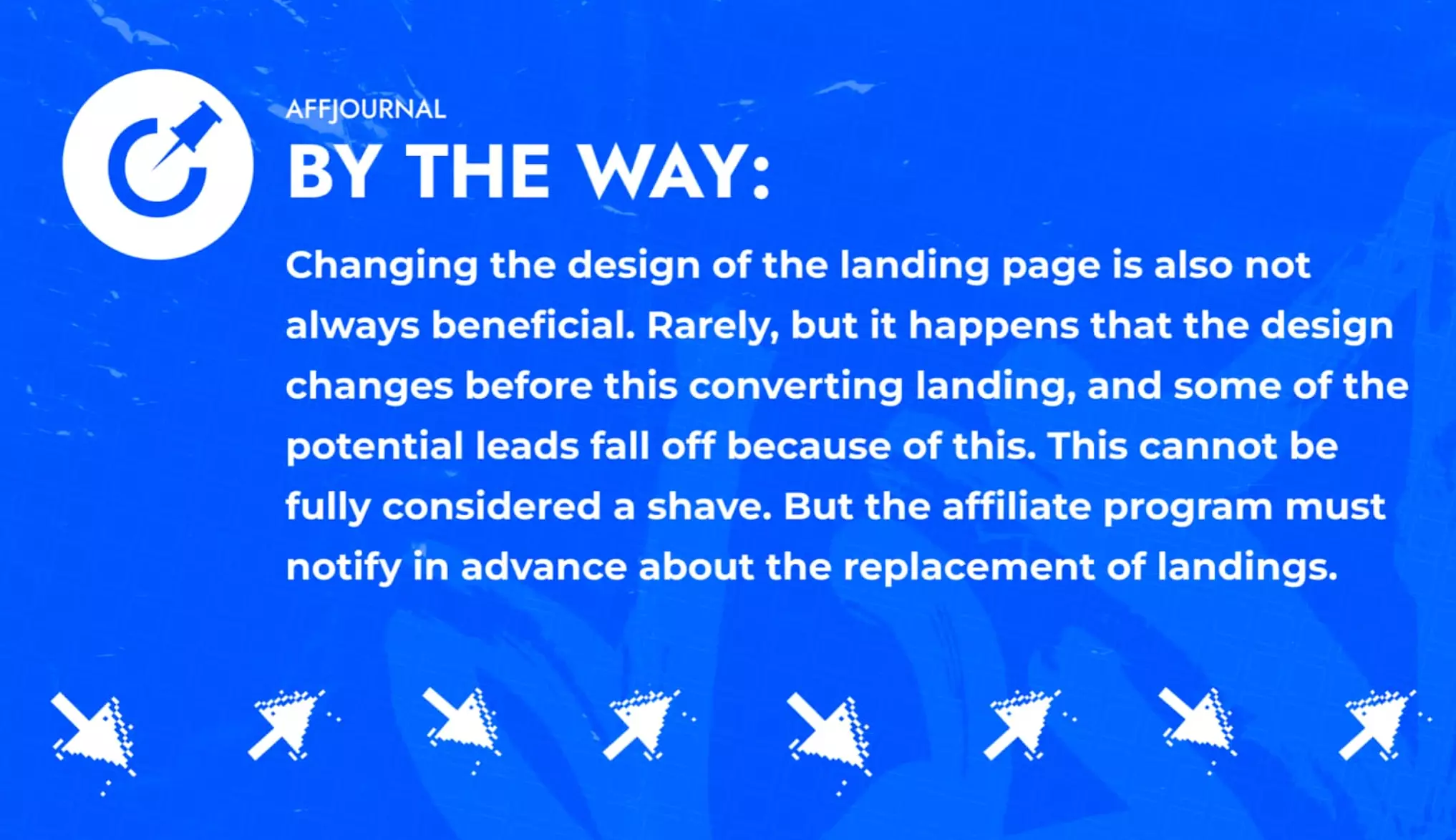

by Editor
Shave in affiliate marketing has become a horror story for beginners and even a meme. And a rare chat or forum does without messages about cutting payments. This article will help you recognize a shave, distinguish it from a drop in CR for other reasons, and expose unscrupulous CPA networks or advertisers. And most importantly, we will tell you how to avoid shaving.
What is a shave and what methods of shave exist
Shave – cutting payments for various far-fetched reasons. A logical question arises: if the affiliate program receives its profit from each confirmed conversion, then why shave? But the CPA network can redirect the received leads to the advertiser without registering them in the webmaster's statistics. Everyone gets their profit: both the affiliate program and the advertiser. And the webmaster falls out of this chain.

Here are some of the possible shave schemes:
- Non-payment for "flying" leads. When a lead, for some reason, converted many days later, the affiliate program simply does not count it in the webmaster's statistics.
- "Loss" of applications during reconciliations. During the process of reconciliation with the advertiser, it turns out that some of the targeted actions were not included in the statistics, the reconciliation takes place, the advertiser pays the network’s shortage, but it does not reach the end user represented by the webmaster.
- Hiding part of the deposits. Occurs in gambling, betting, sometimes dating.
- Add a code to the landing page or application that will take some of your leads directly to the general statistics of the affiliate program, bypassing yours.
- Account ban for no reason. Usually they just block your account under a far-fetched pretext.
After reading this, you may get the impression that a large part of the Affiliate Programs seeks to deceive webmasters. This is far from true. There are times when large CPA networks also come across on this - everyone needs money, and shaving in this case is selective and rare. But most often, young one-day affiliate programs are shaving, created to get their profit as soon as possible.
How to define a shave?
Imagine the situation: you are launching traffic to a new offer, the traffic is consistently good. Already in the first days you get under a hundred leads daily. You decide to scale the campaign. The tracker records the growth of conversions, everything is great. But in the affiliate program, all the same 100 leads are displayed and no more. And so every day, as if you have a limit. Most likely, in this case, you are faced with a shave.
If something like this happens to you, the question of shaving arises by itself
But now only the most arrogant affiliate programs and advertisers act like this “on the forehead”. There are many other signs of shave:
- Approval drops sharply – for example, at first the approval is 80-90%, and then it drops sharply to 60% and below. Here the advertiser himself shaves, and if something has alerted you, contact the affiliate support;
- The quality of traffic drops suddenly – more and more leads fall into the trash, but you are sure that everything is in order;
- Miscellaneous data in statistics. The data in the statistics of the affiliate program and in your source (for example, a tracker or an advertising network) diverge sharply.

Do not rush to accuse the partner of shaving. Check the traffic quality:
- In order to understand whether payments are being cut to you or not, place a test order in the nutra or in the shopping cart. Ask a friend or relative to order a product and check the statistics.
- The same can be done in other verticals, for example, make a deposit in an online casino and check if the payout will come for it. Just make sure that the GEO and the traffic source match the conditions of the offer, and the “tests” look realistic.
How to warn a shave?
To get started, look at the data on the offer in several affiliate programs. If in one CPA network the percentage of approval and conversion is abnormally low, and in all others it is within the normal range, there is a risk of shavе.
Pay attention to the payouts for the offer. If an affiliate pays too generously compared to others, this may be a shive marker (a few will receive good payouts at the expense of other webmasters).
Read reviews. The Affiliate community is quite small, and if someone really shaves or is engaged in an outright scam, then information about this will definitely come up somewhere.
Only not on review sites (we all know that this is a “nest” of custom reviews), but on affiliate forums and chats. If there are 2-3 smooth laudatory reviews, and all the rest unanimously scold the affiliate - be careful.
How to avoid a shave?
There are ways to avoid shaving already during the campaign:
- Use your landing – this will help avoid double redirects and other troubles;
- Walk the entire lead path yourself. If you still decide to use affiliate landings, study them carefully. Walk the lead path yourself, check if the landing is convenient and if there are any surprises on it;
- Connect tracking through the tracker – so you will immediately notice the reduction in conversions, and at the same time make sure the quality of your traffic;
- Request verification of leads that fall into the "thrash", call canceled applications - if there is no time, hire an assistant.
- Keep track of whether the terms of the offer change. If you notice something suspicious, like a sharp drop in statistics, check the conditions carefully.

What to do if you have already noticed and made sure of the shаve?
If you are convinced that you have become a victim of a shave, screen literally every step - statistics from the tracker, ad network, your creatives, etc. This way you will collect evidence that the affiliate or advertiser is shave. After that, contact the affiliate manager and demand compensation.
If it is the advertiser who shaves, there should be no problems - most CPA networks follow the approval, since an abnormally low approval is unprofitable for the affiliate itself. If a CPA network is doing the shaving, trumpet it wherever you can. It is easier for an affiliate program to return your money than to restore your reputation for a long time.

by Editor



comments ....(0)
Leave a comment
You must be in to leave a comment